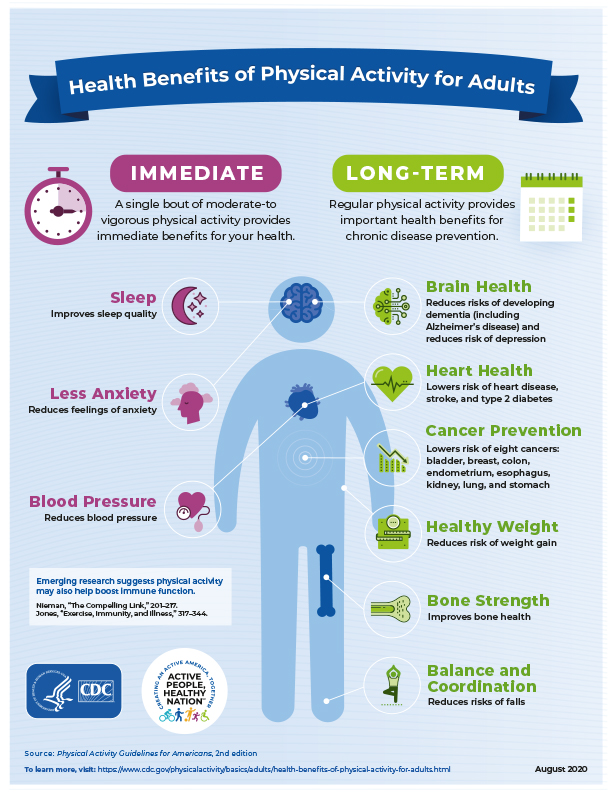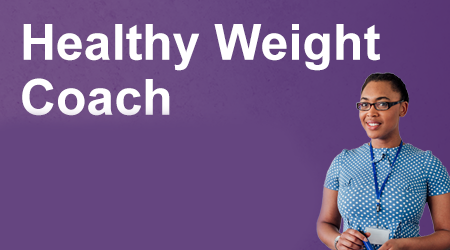
You can get high blood pressure treatment from your doctor if you are diagnosed by them. Some of these treatments are free of cost, and some require a prescription. High-blood-pressure treatments can also be expensive. A lifestyle change can be made to lower your blood pressure. If your doctor feels your blood pressure is high, he might recommend a diuretic.
If you have a high blood-pressure reading, your doctor may suggest making changes to your diet and exercise routine to reduce your pressure. Although some lifestyle changes may prove beneficial, for others, they may not be enough. Your doctor may suggest medication. Although medication can be effective for some, their side effects may prove to be fatal. Your doctor can work with you to find the best highblood-pressure treatments for you.

You can lower your hypertension by making lifestyle changes. This includes a healthier diet, limiting your sodium intake, and getting plenty of physical activity. You can swap your current medication for a new one if you wish. Doing so will lower your chance of future high blood pressure issues. Although they won't eliminate all high-pressure symptoms, these are worthwhile changes.
Lifestyle modifications are an important part high-blood pressure treatment. Lifestyle modifications can be a powerful tool to reduce blood pressure and the long-term consequences. There are many medications that can be used, but the most popular ones use a combination of lifestyle and medicine. In addition to lifestyle changes, taking medications for your high blood pressure is a good idea. These measures can help prevent stroke and heart disease.
Antihypertensive drugs can lower blood pressure. Some of these drugs are safer than others for women, so be sure to discuss your options with your doctor. It is best to make small lifestyle changes to help manage blood pressure. A healthy lifestyle will help you feel better overall, and you'll have less stress. The most commonly used high blood pressure medications include: (1) medication with lifestyle modification.

High blood pressure treatment begins with confirming the diagnosis. With ambulatory monitoring, your doctor can confirm your high blood pressure. This involves using an ambulatory monitoring device to measure your blood pressure for 24 hours. This type of medication is not covered under most health insurance plans. You must have a physician's approval before undergoing any of these options.
FAQ
What is a good schedule for a 7-day work out?
A seven-day program should include three days of cardio training (running, biking and swimming), two strength exercise (using free weights or weight machines) and one flexibility/core work out (yoga, Pilates). Each activity must be completed at least once per week. Maximum 45 minutes should be allotted for each session.
Cardiovascular Exercises: Swimming, Cycling, Running
It is important to complete at least 60 minutes of cardio per week. For best results, aim for 75 minutes per week. Cardio exercise can stimulate blood flow and increase muscle growth.
Strength Training
Cardio exercises focus on the heart and lungs while strength training targets muscles and bones. Strength training increases lean muscle mass and helps to burn calories even at rest.
Flexibility & Core Workouts
To strengthen your whole body, flexibility and core work outs are excellent ways to do so. Yoga and Pilates are both excellent choices.
What is butter good for?
Butter is one of many good sources of saturated fats. This type of fat helps to build stronger bones, healthy skin, and hair.
Vitamin K, found in butter is an antioxidant that prevents bleeding from cuts. Vitamin K is combined with vitamin C to prevent bruises.
Butter also contains minerals like calcium, phosphorous and potassium. These elements promote stronger bones and teeth.
Butter has its limitations. Butter is high in cholesterol. There are studies that show excess cholesterol may increase the likelihood of developing cardiovascular diseases.
Butter is high in saturatedfat, which contributes both to obesity, and raises cholesterol.
You can spread butter on bread if you are forced to use it. Bread absorbs more oil than potatoes or pasta.
Why Metabolic Health Is the Key to Aging Well?
People live longer lives than ever before. As they live longer, they also get sicker. Our current medical science approach is not working, even though we've made many advances.
We must change the way that we look at health and aging. To achieve healthy aging, we must look at metabolic health as more than just weight loss. It is also important to consider overall wellness.
Your metabolism must be strong and healthy to ensure you live an active lifestyle for many years to come.
The good news is that there are many ways to improve your metabolic health. One of those ways is to incorporate these 7 foods into your diet:
-
Resveratrol in blueberries has been shown to support cell longevity. They also contain vitamins C & E, as well as antioxidants.
-
Lentils and pinto beans, which are legumes, provide great fiber and plant-based sources of protein. These nutrients keep blood sugar levels stable so that they don't spike or crash.
-
Broccoli contains the antioxidant sulforaphane. This has been shown in studies to protect DNA. It might even slow down the progression of cancer.
-
Chia seeds are rich in fiber and omega-3 fatty acid. They're also loaded with antioxidants and protein. All of these nutrients are good for heart health, brain function, gut health, and overall health.
-
Green Tea has polyphenols called catechins. The catechins in green tea have been linked to reduced bone fractures, cardiovascular disease, cognitive decline, and diabetes risk.
-
Salmonis rich in vitamin D and low in saturatedfat, salmon is one of the best sources for lean protein.
-
Walnuts are rich in omega-3s as well as antioxidants such alpha lipoic acids (ALA). ALA helps boost energy production and protects against inflammation.
Statistics
- According to the American Academy of Dermatology (AAD), men over 50 are at a heightened risk of developing it. (healthline.com)
- According to the American Heart Association, blood pressure should be checked at least once every two years, beginning at age 20. (my.clevelandclinic.org)
- By John Thompson Take a whopping 38% off a set of PowerBlock Pros. (menshealth.com)
- The PRS enabled risk stratification for overall prostate cancer and lethal disease with a four-fold difference between men in the highest and lowest quartiles (HR, 4.32; 95% confidence interval [CI], 3.16-5.89). (pubmed.ncbi.nlm.nih.gov)
- An estimated calorie range for moderately active adult males falls between 2,200 to 2,800 calories per day, depending on age. (eatright.org)
External Links
How To
How can I exercise to burn fat?
Exercise burns calories through increased metabolism and oxygen consumption.
Moderate intensity exercise is a safe way to lose weight.
These tips can help you to burn fat while training:
-
Cardio exercises like walking, running (or jogging), swimming, cycling, running, and/or elliptical training are all good options.
-
Do 30 minutes of exercise three times a week.
-
Strength training is a great way to lose weight.
-
Avoid intense workouts. It's possible to build muscle, but not lose it.
-
When exercising, make sure to drink lots of water. Water is essential for flushing out toxins and keeping your body hydrated.
-
After exercising, consume low-fat protein smoothies. Protein shakes can help boost energy and repair muscles.
-
You can eat smaller meals throughout the day so that you don't feel hungry in between meals.
-
Don't skip breakfast! Skipping breakfast can leave you feeling tired and sluggish.
-
Mental health is important. Stressful situations can affect your metabolism.
-
Keep a positive attitude. Studies show that people who believe they're overweight gain more weight than those who think they look pleasing.
-
Get enough sleep. You will have a harder time losing weight if you do not get enough sleep.
-
Keep active. Keep moving every hour.
-
Maintain a healthy diet. Healthy eating will keep you fuller and more satisfied for longer.
-
Find ways to relax. Relaxing doesn't mean your body releases stress hormones which cause muscle tissue to be destroyed.
A balanced diet will provide all nutrients that are necessary for growth.
Six small meals per day is better than three large meals. This allows your body to properly digest what you have eaten.
Calcium is required to support strong bones. Calcium can be found in dairy products such as yogurt, fortified soybean beverages, orange juice, cereals, bread, and cereals.
Calcium can be found in leafy green veggies, beans, tofu and nuts as well as seeds, nuts and cheese.
Vitamin D is required for calcium absorption. It's found in fatty fish, egg yolk, and some fortified foods.
Vitamin E is crucial for skin health. It's found in vegetable oils, wheat germ oil, peanuts, almonds, sunflower seeds, and corn.
Your body requires zinc for normal immune function and wound healing. Zinc can be found as a mineral in oysters.
Zinc deficiencies can lead to fatigue, decreased appetite, depression, and reduced immunity.
Too much sugar leads to insulin resistance. This results in higher blood glucose levels. Insulin resistance leads to weight gain.
Insulin resistance develops when there are high levels of free radicals in the bloodstream. Free radicals refer to molecules that contain unpaired electrons. They can damage cell membranes and other body parts.
The most common sources of free radicals include food additives.
Free radical damage can lead cancer, heart disease or diabetes, arthritis, asthma, or other forms of aging.
To prevent free radical damage, eat a healthy diet rich in antioxidants. Antioxidants protect against oxidative damage.
Vitamin C is found in citrus fruits and beta carotene is found in carrots.
Other antioxidant nutrients include selenium, copper, manganese, and zinc.
Selenium protects cells from free radical damage. Selenium can also be found in Brazil nuts (tuna), liver, kidneys and shrimp.
Copper protects the brain, eyes, lungs, and red blood cells. Copper can be found in meat, shellfish, meat, and organ meats.
Manganese, an essential component of bone strength, is crucial. Manganese may be found in brown rice or spinach, bananas and prunes as well raisins, oatmeal and lentils.
Zinc helps with normal growth, reproduction, as well as wound healing. Zn is found in lean meats, poultry, white fish and eggs.